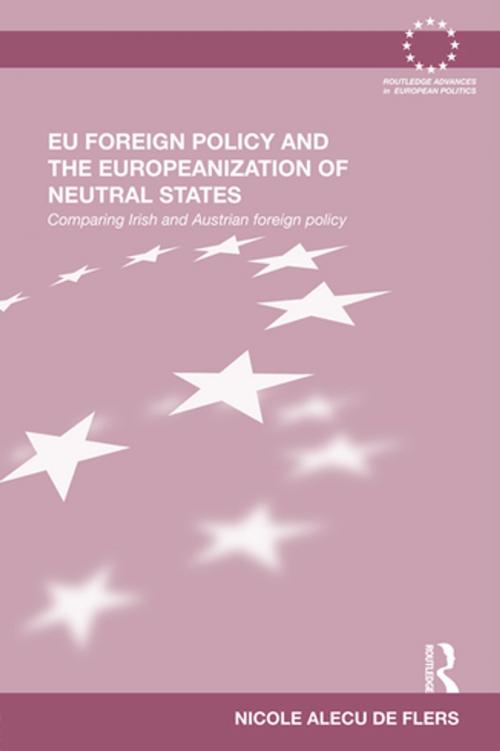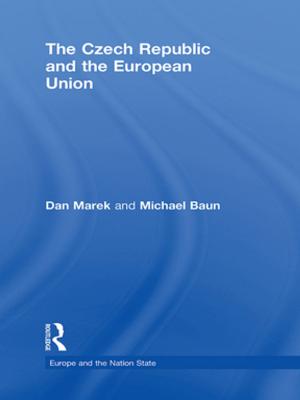EU Foreign Policy and the Europeanization of Neutral States
Comparing Irish and Austrian Foreign Policy
Nonfiction, Social & Cultural Studies, Political Science, International, International Relations| Author: | Nicole Alecu de Flers | ISBN: | 9781136594564 |
| Publisher: | Taylor and Francis | Publication: | March 12, 2012 |
| Imprint: | Routledge | Language: | English |
| Author: | Nicole Alecu de Flers |
| ISBN: | 9781136594564 |
| Publisher: | Taylor and Francis |
| Publication: | March 12, 2012 |
| Imprint: | Routledge |
| Language: | English |
This book examines the effects of the Common Foreign and Security Policy (CFSP) of the European Union (EU) on the national foreign policies of Ireland and Austria.
Small and neutral EU member states provide a fascinating case-study as the CFSP entails a dilemma for them. Their size may create assumptions that they are more likely to adopt EU policy, yet the traditional position of neutrality may act contrary to Europeanization. By concentrating on this side of the reciprocal relationship between EU and national foreign policy, the book takes a new and innovative approach to investigate prospects for a common European foreign policy, and goes beyond an examination of changes in the national foreign policies of Ireland and Austria to provide an engaging explanation and understanding of Europeanization. Based on a comprehensive conceptual framework, this text investigates three dimensions of national foreign policy; the Europeanization of foreign policy-making, the Europeanization of foreign policy substance and effects on neutrality, to create an accessible and informed insight into the evolution of European cooperation in the field of foreign policy, and the impact on national foreign policy.
EU Foreign Policy and the Europeanization of Neutral States will be of interest to students and scholars of European Studies, International Relations and Foreign Policy.
This book examines the effects of the Common Foreign and Security Policy (CFSP) of the European Union (EU) on the national foreign policies of Ireland and Austria.
Small and neutral EU member states provide a fascinating case-study as the CFSP entails a dilemma for them. Their size may create assumptions that they are more likely to adopt EU policy, yet the traditional position of neutrality may act contrary to Europeanization. By concentrating on this side of the reciprocal relationship between EU and national foreign policy, the book takes a new and innovative approach to investigate prospects for a common European foreign policy, and goes beyond an examination of changes in the national foreign policies of Ireland and Austria to provide an engaging explanation and understanding of Europeanization. Based on a comprehensive conceptual framework, this text investigates three dimensions of national foreign policy; the Europeanization of foreign policy-making, the Europeanization of foreign policy substance and effects on neutrality, to create an accessible and informed insight into the evolution of European cooperation in the field of foreign policy, and the impact on national foreign policy.
EU Foreign Policy and the Europeanization of Neutral States will be of interest to students and scholars of European Studies, International Relations and Foreign Policy.















